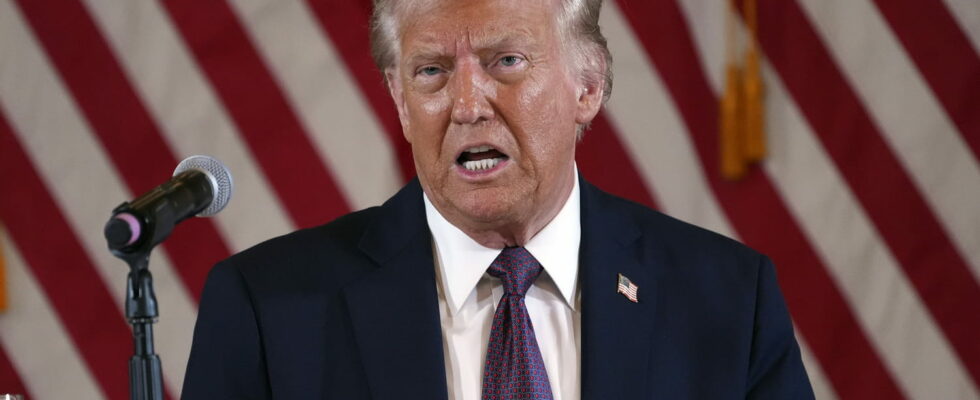A truce agreement between Israel and Hamas would be “on the verge” of succeeding according to Joe Biden. How can we explain this acceleration of talks observed after months of negotiations and only a few days before the inauguration of Donald Trump?
“Negotiations are progressing” regarding a truce between Israel and Hamas, said Israeli Foreign Minister Gideon Saar on Monday January 13. The same day, US President Joe Biden assured that a truce agreement is “on the verge” of being reached. After 15 months of war in the Middle East, the two belligerents have never been so close to an agreement, and the intensification of negotiations does not seem foreign to the American political agenda.
This January 20, Joe Biden will give way to Donald Trump in the White House. However, upon his victory in the presidential election last November, the president-elect promised “hell” to the region in the event of non-release of Israeli hostages held by Hamas before his coming to power. Did the threat have the effect of accelerating the talks? Joe Biden in any case insisted to the Israeli Prime Minister, Benjamin Netanyahu, that an agreement be concluded before the Republican’s inauguration.
Trump’s influence on Israel
After months of conflict and daily deadly strikes, it was not so much the threat formulated by Donald Trump as the intervention of his team in the negotiations which made it possible to move the negotiations forward. The Israeli Prime Minister was more “flexible” towards the Republican emissary sent to take part in the negotiations, the pro-Israeli Steve Witkoff, reports France Inter. Even though the agreement which seems “on the verge” of being concluded is a proposal made by the United States “several months ago” according to Joe Biden and amended at the margins. Donald Trump’s positioning and policies have also calmed the Israeli far-right forces who blocked previous truce proposals. The latter hope to be able to count on the support of the Republican by making efforts on a truce agreement. Even if some continue to oppose the conclusion of an agreement.
If the next inauguration of Donald Trump may have facilitated negotiations concerning a truce, this breakthrough in the discussions could be due to the wear and tear of both camps after more than a year of war. Both Hamas and the Israeli army have lost many of their military capabilities during the months of fighting and their popularity has declined in their respective camps, notes Bruno Tertrais, deputy director of the Foundation for Strategic Research, on Franceinfo. Benyamin Netanyahu was thus able to give in to popular pressure which is more focused on the release of the hostages than on the extermination of Hamas. A turnaround after months spent following the politics of the far right and its desire to dismantle the Islamist group whatever the human cost.
What does the truce agreement provide for?
The truce agreement in question would provide for the release of 33 to 34 Israeli hostages out of the 94 who remain according to the army’s count, mainly children, women and men over 55 or sick. Note that the Israeli army estimates that 34 of the hostages have died since their kidnapping. At the same time, 1000 Palestinian prisoners would be released, but none having participated in the October 7 attack according to Reuters. The exchanges would take place after an end to the fighting and in stages in return for a gradual withdrawal of Israeli troops and the return of Palestinian civilians to northern Gaza.
A second phase, and perhaps a third sentence, of the truce would be negotiated sixteen days later. It would serve to free the remaining living and dead hostages, in exchange for new Palestinian prisoners, and should result in the total withdrawal of Israeli troops according to Euronews. On this point the negotiations would not be finished. It must be said that Hamas has always wanted the agreement to provide for a permanent cessation of the war and the withdrawal of the Israeli army from Gaza, when the Jewish state has so far refused to definitively stop the fighting before extermination of Hamas.
A position still supported by certain far-right Israeli ministers such as that of Finance, Bezalel Smotrich, who refuses to support a “surrender agreement which would include the release of hyper-terrorists, the end of the war, and the loss of which was acquired at the cost of much bloodshed and the abandonment of a large number of hostages.
If several American and Israeli sources are optimistic about the signing of a truce agreement between the Jewish state and Gaza, everything can still change until the last moment. The next few days should be crucial: the White House national security adviser, Jake Sullivan, spoke of a delay of a “week”, while a Qatari source taking part in the negotiations estimated to AFP the January 13 that “the next twenty-four hours will be decisive for the conclusion of the agreement”. In the event of extensions of discussions, the date of January 20 could be the deadline.
